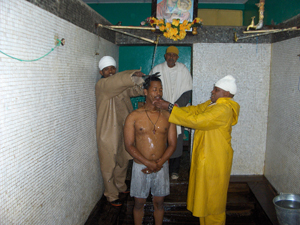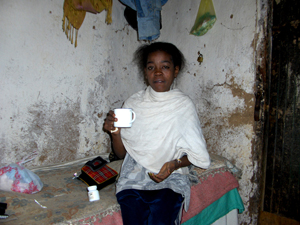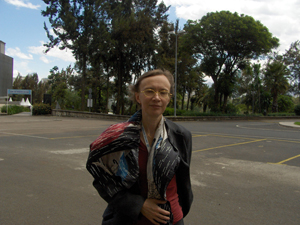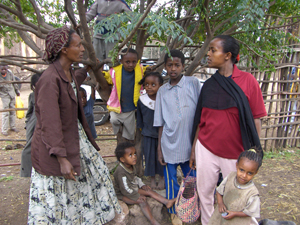In the course of the investigative reporting for the Divine Intervention project, the Center for Public Integrity sued the U.S. State Department on behalf of the International Consortium of Investigative Journalists (ICIJ) to gain access to funding information for the President’s Emergency Plan for AIDS Relief (PEPFAR).
The government refused to release a database known as COPRS (the Country Operational Plan Reporting System), which is a massive collection of PEPFAR financial and program data. Instead, the State Department agreed to release two different PEPFAR grant datasets.
One file contained a list of 2004 and 2005 PEPFAR grants called “central awards,” funds awarded and managed by the U.S. Agency for International Development directly out of its headquarters in Washington, D.C. The second file was a list of PEPFAR grants allocated for the same period by U.S. government offices abroad.
After reviewing the data, the Center decided to make available to the public only the centrally awarded grant dataset. This decision was made because the Center identified a number of errors and omissions in the second file with information regarding the grants allocated by the U.S. offices abroad.
The flawed dataset shows PEPFAR money flowing from U.S. government primary contractors (prime partners) to their indigenous sub-partners in the field. The Center found more than 100 instances in which the total amount awarded to sub-partners was listed as being greater than the total amount received by their prime partners.
For example, the dataset shows that prime partner International Rescue Committee in Uganda was awarded $294,690 for 2005, but that the amounts for its three sub-partners add up to $727,738 — more than double the prime partner’s total.
In another case, Africare in Tanzania got $150,000 in 2004, but its sub-partners’ amounts total $285,134.
Finally, Christian Reformed World Relief Committee was awarded nothing in 2005, according to the database, but its sub-partners reported receiving $851,986 from CRWRC.
The State Department acknowledged “some sort of error in the data” and said it “continually works on improving data quality.”
Available to the public
The dataset of centrally awarded grants released here as part of this project corresponds to programs new to the U.S. HIV/AIDS foreign policy and with “high levels of congressional interest,” according to the government. These programs include abstinence and fidelity programs, blood safety, safe medical injections, antiretroviral treatment and care for orphans and vulnerable children.
Central awards are one-time, five-year grants. The dataset shows yearly obligated amounts for 2004 and most of 2005.
The file released by the Center can be sorted by several criteria: country; program type; implementing organization; organization type (host government, faith-based, nongovernmental, multilateral agencies, private and universities); or fiscal year.




